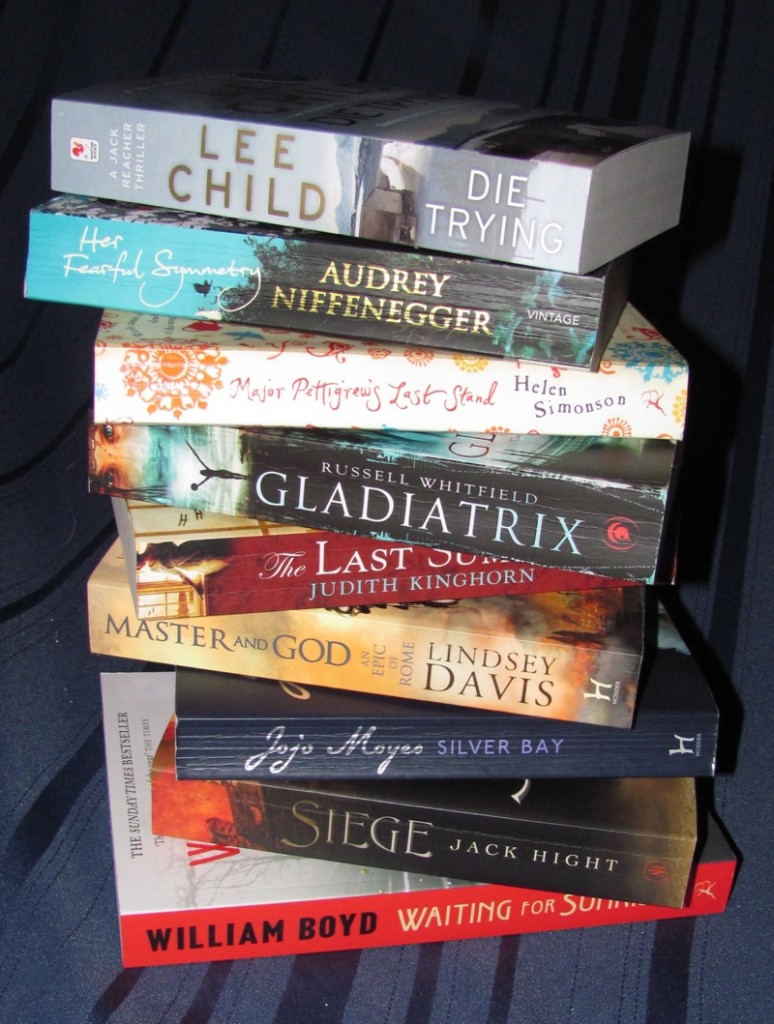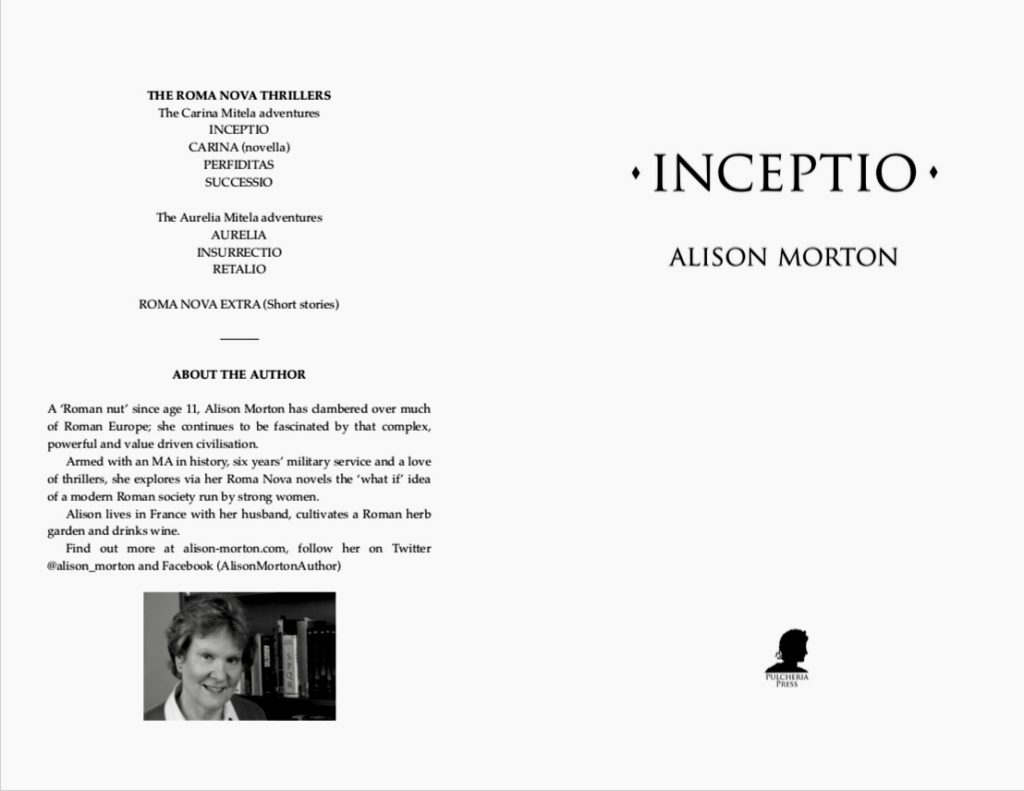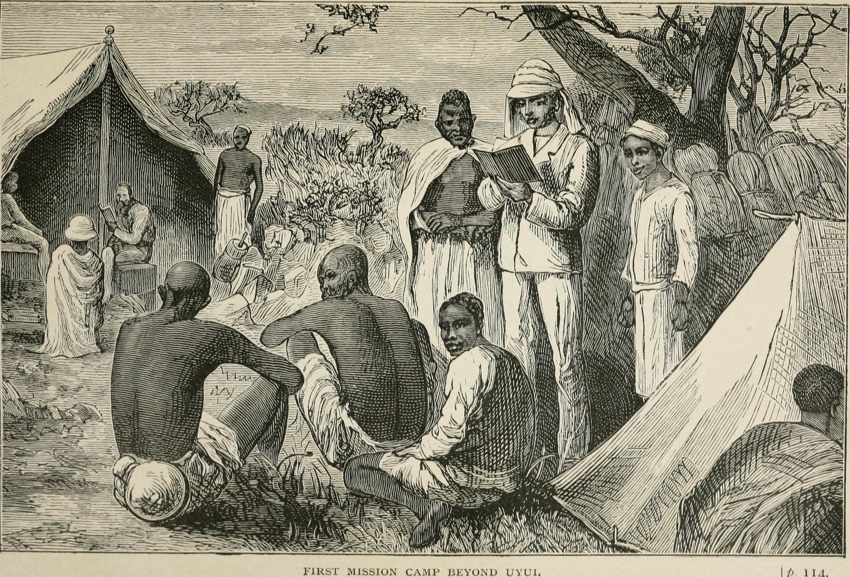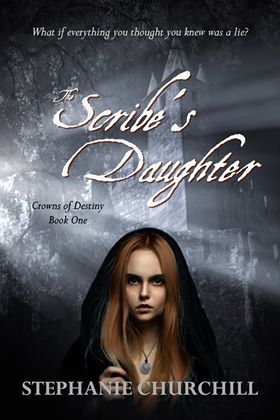 Reviewing books isn’t easy. It takes time and attention, plus sometimes, you have to damp down the pleasure that wells up when it’s a really good read. If I’m grabbed, sometimes overwhelmed, by the power of the story, I read on and enjoy the book, then I go back and read it more analytically. Reviewing books isn’t easy. It takes time and attention, plus sometimes, you have to damp down the pleasure that wells up when it’s a really good read. If I’m grabbed, sometimes overwhelmed, by the power of the story, I read on and enjoy the book, then I go back and read it more analytically.
However, book reviews are subjective. This is what I tell myself when any of my books receives a one or two-star comment on Amazon; thankfully, it’s a reasonably rare event. 😉
I review for various groups and organisations, sometimes as me and – big secret revealed – sometimes under a variety of pen names. If I know the author and I’m underwhelmed by their latest, I’d rather not hurt their feelings.
Above all, book reviewing must be honest. “It was wonderful, darling!” does nobody any good. As an author, I wonder what the reviewer isn’t telling me. I hope my books are reasonable, but I know they aren’t ideal for everybody or at Nobel-winning level.
As a reviewer, I want to say what’s “wonderful”; how it resonated with me, how well the story flowed, how well-written it was, how natural and complex the characters were. But if there were faults, I think it’s honest to tell the author.
Of course, pointing out problems should be done constructively and only refer to the work, not the author. Pointing out the author has the intelligence of a donkey and research ability of a gnat isn’t very kind. Better to suggest that “more thorough research in area x or y would be worthwhile.”
Which brings me to my chief niggles when I’m sent a book for review…
I review indie and traditional authors, first books and twentieth in series, but I expect a certain standard however the book is brought to market. The author/publisher is asking the reading public for money in exchange for their work so it should be fit for purpose.
Covers vary and I’m not going into that area in this post – there are far wiser heads out there. I’m focusing on the innards of a book. The following are all irritating and bad signs, but they vary in their awfulness. In ascending order…
Niggle 1 (minor) – Front and back matter
Writers are readers and come across a lot of books. It only takes a few minutes for me as a reader to check how the title, copyright, list of other books, a brief author bio, character list, family trees, maps, acknowledgements, historical note, etc. are set out. As a writer I know just how long it takes to set and format these! Although their presentation is nothing to do with the story, it shows the level of seriousness and professionalism with which the writer has approached the whole project of publishing their book. If it’s jumbled, sloppy or missing elements, that sounds alarm bells for me.
 An example print layout. Not necessarily perfect, but clear. Niggle 2 (medium) – Spelling and grammar
Yes, it’s the story that counts, but no, not if the author can’t be bothered to get these basics right. Different Anglophone territories have different spelling systems – colour/color, honor/honour – and different syntax – “Can I get?”/”May I have?” – and vocabulary – boot/trunk, soft drink/soda. Most readers are grown-up enough to take this on board. Indeed, language differences can enhance the atmosphere and setting as can foreign phrases at non-essential points.
But within these systems, language should be consistent and used correctly.
Niggle 3 (major) – Editing
This is separate from Niggle 2 in that all the spelling and grammar can be technically correct, but the book can still be poorly edited. At a basic level, apostrophes, speech marks (whether single or double) are important as are the correct dashes (hyphen, en-dash or em-dash).
But a good edit takes the book into a polished wonder. It’s a process, from the author carrying out the first self-edit, to the structural editor, the copy editor and finally, the proofreader. Critique partners and beta readers can give feedback on structure, cohesiveness and sheer readability but it’s the copy editor who nails the flow and polishes the text.
I’ve just finished a moving story with impeccable research cleverly inserted and very good characterisation, but poorly, if at all edited. Such a pity as it would have been a true ‘good read’ and received five stars instead of four.

Excuses given for not having a book edited
Not knowing how essential it is
Remedy – Ask other informed/experienced authors, research publishing articles from reputable sources, look at your own reviews so far, consult a publishing expert. In short, learn your trade.
Laziness/not caring/being overconfident = attitude problem
You are 99.99% unlikely to be Harper Lee/Joanne Harris/Shakespeare and your book is unlikely to be The Great British/American/Australian Novel. However hard you have worked on your book, you are too close to it, your baby. You will not be able to see its flaws.
But if you can’t be bothered to have your book edited to give your readers a top-notch experience for their hard-earned cash, then shame on you.
You, your auntie, your sister or your friend might be an English teacher/lecturer, but they are not a professional book editor.
Remedy – Examine your attitude while putting yourself in your potential reader’s shoes. Bottom line: if they are discontent with your first book, they probably won’t risk buying the second.
Not having the money to pay for it
This can a genuine problem, but why have you put your book out prematurely? Better not to publish it yet rather than putting a sub-standard product on the market.
Remedy – Try to find a few pound/dollars/euros a week and put them in a locked savings box and give the key to a trusted friend. You’ll need around 5-600 for a good quality edit. Enforced saving will get you on track. Ask for money for birthdays, Christmas, etc. to boost the contents of the box. In the meantime, draft your next book.
Not having the confidence to invest in yourself
This goes hand-in-hand with imposter syndrome, i.e. wondering if you’re good enough to warrant the expense, whether writing is a genuine occupation for anybody to be spending money on, or if writing is nothing more than a pleasant hobby.
Remedy – Ask yourself these questions
How serious are you about your writing?
Is it a life obsession?
Do you want to share it with the world?
Do you want to learn more about your craft?
Do you want to supplement your income?
The answers will help you make up your mind.
Publishing a book is not for softies and the market is a cross between the Amazon jungle and a deserted coral island. You owe it to your readers and importantly to yourself to turn your book into polished gold that will outshine the rest of the treasure out there.
And make reviewers happy.

Alison Morton is the author of Roma Nova thrillers – INCEPTIO, PERFIDITAS, SUCCESSIO, AURELIA, INSURRECTIO and RETALIO. CARINA, a novella, and ROMA NOVA EXTRA, a collection of short stories, are now available. Audiobooks are available for four of the series. NEXUS, an Aurelia Mitela novella, will be out on 12 September 2019.
Find out more about Roma Nova, its origins, stories and heroines… Download ‘Welcome to Roma Nova’, a FREE eBook, as a thank you gift when you sign up to Alison’s monthly email newsletter. You’ll also be first to know about Roma Nova news and book progress before everybody else, and take part in giveaways.
If you enjoyed this post, do share it with your friends!Like this:Like Loading...

A pleasure to host multi-published historical fiction author Clare Flynn on the blog today. I’ll let her introduce herself…
I would have given you all of my heart
But there’s someone who’s torn it apart
And he’s taken just all that I had
But if you want I’ll try to write again
Baby I’ll try to write again but I know
The first book is the toughest
Baby I know the first book is the toughest.
(With apologies to Cat Stevens (and to Rod))
My first novel, A Greater World is published today! Yes – four and a half years after its publication, it’s about to be reborn. After self-publishing eight historical novels and loving almost every minute of the indie publishing journey, I was approached out of the blue and offered a trade publishing deal with Canelo. They are re-launching A Greater World on 10th January and publishing a sequel, Storms Gather Between Us, in June. I will still be a proud indie, but I’m delighted and excited to have a second string to my bow.
So, to mark the re-release of A Greater World, I thought I’d tell you a bit about how I got there and why my bowdlerisation of Cat Stevens’s song is appropriate to me and the book.
People who know me might describe me as a fast and prolific writer. I’ve published three full-length novels in 2018. A Greater World, however, was a lot slower in its gestation. I can’t remember exactly when I started to write it. My best guess is some time after my second trip to Australia in 1998. It was first published in 2014, sixteen years later. So why was I such a slow coach then?
Having the wrong mindset
When I began the book, I used to refer to it even to myself as “my trashy novel”. It was almost as if I’d given myself a free pass to do less than my best. There was also a bit of intellectual snobbery (“The kinds of books I read are superior.”) mixed in with insecurity (“I’ll never be good enough to write the kind of book I read myself.”)
Writing was a slow and painful process because I wasn’t fully committed to it. It was as if I were ashamed of what I was doing. I imagined I would have to use a pen name as I wouldn’t want me name associated with it. I’d become a literary fiction snob. Then I realised that a lot of the books I’d been reading lately were actually boring the pants off me, and the books I’ve enjoyed over a lifetime of reading have come from all genres, not just literary fiction. Once upon I time I didn’t even care – a book absorbed me, or it didn’t. So, I decided I’d try to write a book that might have absorbed me as a reader, and that I could feel proud of – even if it was never going to be a literary prize winner. That unlocked things. I began to write the book I wanted to write – and I have never used a pen name.
Having some bad luck
“And he’s taken just all that I had” – having written 80,000 words, my house was burgled on the day before Christmas Eve in 2007 and the burglar took my Macbook and the other laptop I’d backed it up on. I’ve told this story so many times before, so apologies if you’ve heard it, but I was ready to throw in the towel. This book was just not meant to be. I nursed my wounds for six months until I moved house, leaving the Ghost of Burglars Past behind me.
It was then that I read about TE Lawrence leaving the manuscript of The Seven Pillars of Wisdom in a luggage rack when he changed trains at Reading station. Despite a nationwide appeal it was never recovered. Lawrence’s manuscript was 250,000 words and he sat down and rewrote it in three months – 400,000 words this time, from memory. One of my fundamental weaknesses is my highly competitive nature, so naturally I said if he could do it so can I. And I did.
Taking the slow road
Having finished my rewrite, I set about looking for an agent. This was 2012 and despite reading a lot about the blooming of self-publishing and the golden opportunities it offered, I remained convinced that the only way for me was the traditional way. My agent was incredibly helpful and gave me lots of advice to improve the book. Several months and two drafts later, she was ready to send it out. That was when the scales began to fall from my eyes. After a lifetime in Marketing I began to curse the discipline that I’d earned my living from – when I heard the constant refrain of ‘I love it but can’t sell it to Marketing’, or ‘We already have an author on our list in that space’ or ‘Marketing says books set in Australia don’t sell’. When my agent didn’t like my second book, I told her I’d have a go at self-publishing. She gave me her blessing and we parted our ways. While things were slow at first – only £500 of sales in the first six months, I discovered the fantastic supportive world of indie publishing and soaked up as much knowledge and advice as was available – it was plentiful and so generously given! After that things got better and faster, although it’s fair to say I do work very hard.
The subsequent books were much less tough
My second novel, Kurinji Flowerswas written and published within a year and followed a year later by Letters from a Patchwork Quilt. Since then, I’ve upped the pace of writing and publishing. The follow-up to A Greater World, will be published by Canelo in June 2019. It took me four to five months to write. That’s not to say it was easy. I still agonise and go through ‘dark nights of the writer’s soul’ with massive self-doubt and fear that it will never work out or it will be my worst-ever book – but now I know enough about myself and my writing to realise that it will come right in the end. I also have the luxury of being a full-time writer now which makes a massive difference.

So, why have I taken a trade deal?
The answer is simple. I think I will learn a lot from it. Having a different perspective will be interesting. I want to see if having the clout of a publisher behind me will make a difference. I’ve done pretty well on my own, but I’d never be so arrogant as to assume that someone else can’t do it better. I still have seven other titles under my own control so I can continue to indulge my daily fix of checking my sales figures. The team at Canelo have so far proved to be flexible and collaborative and I am enjoying the relationship. I’ve always been a fairly prudent person when it comes to financial matters so it’s only natural that I don’t want to have all my eggs in one basket.
I will be putting Canelo to the test as I go away for four months in January – five days before the launch of A Greater World. I delivered the manuscript for the sequel a couple of weeks ago and my editor there says it’s good to go. As I’m going to have only limited and sporadic internet access while I’m gone, the future of these two books is now very much in their hands. I will be sailing around the world and I’m giving myself some time off. No promises about writing another book while I’m gone (but I wouldn’t bet against it!).
More information Clare and her books here: https://clareflynn.co.uk
Facebook: https://www.facebook.com/authorclareflynn/
Twitter: https://twitter.com/clarefly @clarefly
So what’s A Greater Worldabout?
 Here’s what my publisher says : Here’s what my publisher says :
“A wrenching saga of the voyage that changed their lives. Elizabeth Morton, born into a prosperous family, and Michael Winterbourne, a miner, come from different worlds but when they each suffer unspeakable and life-changing tragedy they’re set on a path that intertwines on the deck of the SS Historic, bound for Sydney. Falling in love should have been the end to all their troubles. But fate and the mysterious Jack Kidd make sure it’s only the beginning.”
Just this morning I had a wonderful comment about the book from a reader, on Facebook. She said, “It’s truly one of the best novels I have ever read, I loved it. Can’t wait to read the follow up too.” It’s comments like that which make all the difference to a writer!
A Greater World is on sale at all key online retailers and also available as a paperback and audiobook.
Amazon Kindle Apple iBooks Google Play Kobo
Thank you, Clare! I’ve read A Greater World and heartily recommend it.
Alison Morton is the author of Roma Nova thrillers INCEPTIO, PERFIDITAS, SUCCESSIO, AURELIA, INSURRECTIO and RETALIO. CARINA, a novella, and ROMA NOVA EXTRA, a collection of short stories, are now available. Audiobooks are available for the first four of the series.
Find out more about Roma Nova, its origins, stories and heroines… Get INCEPTIO, the series starter, FREE as a thank you gift when you sign up to Alison’s monthly email newsletter
If you enjoyed this post, do share it with your friends!Like this:Like Loading...
 No, not Fifty Shades, but something a long, long way away from that. No, not Fifty Shades, but something a long, long way away from that.
Since 2016, I’ve seen a marked decrease in rationality, the lessening of the desire to examine and discuss and disagree in a civilised way, and for that to have become the norm.
‘Polarisation’ used to apply to the nutters at the far edges. After all, the North and South Poles are at the directly opposite ends of the earth, the extremes. Most people – the decent, law abiding, mildly boring – lived, worked and thought in the centre. Yes, they’d perhaps tend towards one view a little, but only a few centimetres from the middle of a 30 centimetre ruler.
My rose-tinted spectacles aren’t that powerful that I believe people are all angels – the prisons and the daily news show the opposite – but views and their expression have mostly been within a certain spectrum.
Now it seems to have changed.
Book publishing
 This century, universal self/indie publishing bounced in like a rambunctious teenager, full of rebellion, vigour and demanding tones. Mainstream publishing sneered, looked down on it and thought it would either go away or grow up. And it did exactly the latter. It won readers, prizes (where permitted) and now represents a significant and respectable sector of the book trade. Readers don’t only care who published a book, only if it is a good read. This century, universal self/indie publishing bounced in like a rambunctious teenager, full of rebellion, vigour and demanding tones. Mainstream publishing sneered, looked down on it and thought it would either go away or grow up. And it did exactly the latter. It won readers, prizes (where permitted) and now represents a significant and respectable sector of the book trade. Readers don’t only care who published a book, only if it is a good read.
While the progressive element within traditional publishing is now looking at joint working, hybrid publishing and modelling practices, especially marketing, on those of the most dynamic indies, there is still virulence in the book trade and, disappointingly, from fellow authors against those who have chosen the independent route. In fairness, many authors are still in the centre, but those at the edges can be dismissive even vitriolic, not acknowledging that trade publishing via agent and commissioning editor in a publishing house can suit some writers, or that professional indies use editors, graphic artists and designers and publish on the same trade platforms.
But other parts of the book world are still lost in the mists of time. An example I found this morning: The BBC Short Story Prize (in association with the University of Cambridge) specifically excludes entries from self-published authors, even if they have sold a million books. The competition rules go into painstaking, almost malicious, detail on how they are excluding such authors:
2.8 The author must have a prior record of publication in creative writing in the United Kingdom. This means the author must previously have had a work or works of prose fiction, drama or poetry published by an established UK book publisher [more]
2.8.1 For the avoidance of doubt, ‘established UK publisher’ means a publishing house or company that publishes a list of titles by different authors, that produces titles with an ISBN and sells them in pounds sterling, and that distributes them through established retail outlets.
2.8.2 For the avoidance of doubt, ‘established newspaper, magazine, journal or periodical’ means [more] a periodical that is printed regularly (at least annually) that has been in circulation for at least the past 12 months, has an ISBN or ISSN number and is not self-published; or has a paid subscription-based website.
2.8.3 For the avoidance of doubt, ‘a UK national broadcaster’ means a national radio station or television channel.
2.8.4 None of the following will constitute a ‘record of prior publication’:
(i) self-published material of any kind;
(ii) work published via commercial arrangement through which the publisher is paid by the author;
(iii) online publication via an author’s own website or blog, or a writing community site.
Nice.
Does it really matter how an author is published? Can competition entries not be judged on merit alone? Such discrimination makes the BBC look as ridiculous as the French booksellers who refuse to sell a self-published book longlisted for the prestigious Prix Renaudot, the complement to the Prix Goncourt.
Politics
 Disclaimer: I am a pro-EU, left/centre UK Conservative Disclaimer: I am a pro-EU, left/centre UK Conservative
2016 was a peculiar year and I don’t want to re-run the politics. We all know about red busses and alternative facts. Since then the levels of invective and stubbornness have become pronounced. Behaviour by leading players has deteriorated into the childish, leaving the adults in the rational centre stunned, despairing and trammelled by good manners. Here in France, peaceful demonstrations by the ‘gilets jaunes’ have deteriorated into full-blown riots destroying many people’s business and causing 10 deaths, let alone enormous resentment and division.
Can we not step back and try thinking how to go forward instead of stubborn dithering and lack of consideration for others? How about some nice, boring sitting down over a cup of tea and putting country before self-interest?
Language over the past few years has become violent; ‘devastated’ when they mean ‘upset’, ‘crushed’ for ‘a bit put out’, destroyed for ‘set back’, ‘euphoric’ for ‘quite pleased’, ‘the kill zone’ for a ‘difficult meeting’, a ‘plunge’ on the stock/currency market for a shift of 0.01%. A tsunami causing hundreds or thousands of deaths is ‘devastating’; a battle against IS in the deserts of Kurdistan is in ‘the kill zone’.
Life and similar stuff
I confess I am not good with irrationality, especially when people pooh-pooh really well-established facts from true experts in favour of the twisted rubbish pushed in the tabloids. The issues behind current disruptions and events are what we should be studying and addressing, not getting into a tantrum about them. Human beings have large, well-developed brains. Let’s use them and the social courtesies that should go with them.
As 2019 starts, I’d really like to see less shouting, less violence and more rationality and avoiding the poles. Let’s aim for the centre, the shades of grey, the neutral zones, inclusion, and introduce listening, balance and rationality.
Oh, there I go again, wearing the rose-tinted glasses.
Alison Morton is the author of Roma Nova thrillers – INCEPTIO, PERFIDITAS, SUCCESSIO, AURELIA, INSURRECTIO and RETALIO. CARINA, a novella, and ROMA NOVA EXTRA, a collection of short stories, are now available. Audiobooks are available for four of the series. NEXUS, an Aurelia Mitela novella, will be out on 12 September 2019.
Find out more about Roma Nova, its origins, stories and heroines… Download ‘Welcome to Roma Nova’, a FREE eBook, as a thank you gift when you sign up to Alison’s monthly email newsletter. You’ll also be first to know about Roma Nova news and book progress before everybody else, and take part in giveaways.
If you enjoyed this post, do share it with your friends!Like this:Like Loading...

I’m delighted to welcome Antoine Vanner, author of the Dawlish Chronicles, for a return visit to the blog. Set in the late Victorian period, the series of naval adventures are linked closely to real historical events, and sometimes personalities, of the period and in most feature a high degree of moral ambiguity and ethical dilemmas.
The settings vary enormously – the Ottoman Empire, Paraguay, Gilded-Age USA, Cuba, Korea, the Sudan and, in the latest book, East Africa. The period is one of unprecedented social, political, scientific and technological change and the first cracks are appearing in Britain’s position as a leading power. Old animosities with France and Russia persist, Germany, Japan and the United States are emerging as major players.
This is the world in which the Royal Navy officer Nicholas Dawlish (1845-1918) and his formidable wife Florence (1855-1946) must fight for career advancement and social acceptance while still retaining their integrity.
Over to Antoine!
Writing the opening sentence of any novel is likely to be more difficult than producing an entire chapter later. For his masterpiece, The Go-Between L.P. Hartley crafted a superb sentence that has become one of the best known in modern literature, so much so that many who quote it do not know its origin.
“The past is a foreign country: they do things differently there.”
It’s more than a book opening – it should be the motto, the guiding light, the dictum that anyone writing historical fiction should constantly have in mind. It is also however a truth honoured more in the spirit than in the letter. Ignoring it results in novels which are little better than pastiches, pageants populated by twenty-first century characters clad in re-enactors’ costumes and motivated by twenty-first-century values and attitudes.
For the past is indeed a foreign country, even if that past is as recent as the lives of our deceased parents or grandparents. L.P. Hartley’s narrator knows this – he’s an old man, looking back to the England he knew when he was thirteen years old.
It’s not just a question of external detail – writers, like re-enactors, often agonise over achieving absolute accuracy as regards clothing, weapons and everyday articles – for unless the characters’ mindsets are consistent with the values and beliefs of the era portrayed the story will never be convincing.
And those mindsets can be very uncomfortable to enter into
There’s somewhat of a paradox here. It’s not too difficult to achieve realism when portraying psychopathic tyrants or villains – their actions are the embodiment of their malignancy. It’s far harder to admit that a virtuous and admirable individual, whether actual or fictitious, can have held beliefs or values which we find repugnant today, and that they saw nothing wrong, and that it was even admirable, in acting in accordance with them. Seen through the lens of the early twenty-first century – a lens that will itself change significantly in the decades to come – the world-views and preoccupations that governed our ancestors are difficult to comprehend and harder still to reflect in fiction.
Instances abound from every era of history but it’s as good an example as any to take the Early Modern period, say 1450 to 1650. Portrayal of characters in fiction set in this time must take account of the belief of the Devil as an active player in human affairs, often physically manifest, and of hellfire and eternal damnation as appropriate punishments for holding views considered in any way heretical. Regardless of whether regions were dominated by Catholics, Lutherans or Calvinists, the division between temporal and religious authority was blurred, and sometimes non-existent. Persecutions, hideous tortures, massacres, witch hunts and imposition of social control at levels comparable to those in twentieth century totalitarian states, all followed. For a major portion of most populations these measures were considered fully justifiable, even praiseworthy, while for those whose questioning could be regarded as what Orwell later describe as “thought crime” the penalties could be extreme – and seen by most as well justified.
 St Batholomew’s Day Massacre 1572 (François Dubois, 1529– 1584). Public domain The believers, fervent or otherwise, were not necessarily evil people but they were complicit in crimes as massive, for example, as the witch hunts that were estimated to have between 40,000 to 60,000 lives in Europe in the 15thand 16thCentury. Nobody was safe from accusations of witchcraft and the fact that the scientific revolution was beginning helped little. Johannes Kepler (1571-1630), the mathematician and astronomer who discovered the laws of planetary motion, spent fourteen months defending his imprisoned mother against the charge of being a witch. This would have ended in her burning had he not been successful – a textbook example of state-sanctioned superstition confronting the earliest stirrings of the still far-off Enlightenment.
Any fiction written about this period needs to face the fact that people who were considered moral – or even enlightened – by the standards of their own day, lived in a climate of fear, not just about the here and now, but about all eternity. To cope with that, they countenanced, supported or actively implemented controls, including torture and savage execution, which one would have thought repugnant to any rational or compassionate human being at any time in history. And yet by their own lights these people saw themselves as decent and upright.
The modern novelist’s dilemma
I encountered the problem of getting into the mindsets of a wholly different era when writing my own most recent novel, Britannia’s Mission, the seventh of the Dawlish Chronicles series. Writing as I do about the late nineteenth century, I am always faced with such challenges. In this book however, set in East Africa in 1883, in which the protagonist, the Royal Navy Captain Nicholas Dawlish, must deal with both Catholic and Protestant missionaries, the task was especially daunting. Having lived for many years in Africa I was aware of the massive impact such missionaries had in Sub-Saharan Africa in the late nineteenth and early twentieth centuries, an impact that is still important today. Selfless, indomitable, sometimes naïve but always heroic, often to the point of madness, these missionaries were responsible for the fastest and largest mass-conversion in history. Anyone familiar with contemporary Africa cannot but be impressed by the exuberance and sincerity of the Christianity that flourishes there in so many forms and how integral it is in community life. It is touching also to see how often the memory of missionaries long dead is still revered. But when I came to research these heroic – though somehow forbidding – people in more detail for my book, reading biographies or memoirs, identifying hymns written expressly for the mission field, I was struck by how greatly different they were in thought and behaviour to myself and my contemporaries, even to those of strong religious convictions.
 The idealised Victorian ideal of a missionary in Africa – the actuality was considerably less pleasant (Mackay of Uganda). Public domain The missionaries’ legacy
Judged by today’s standards, such 19thCentury missionaries are easy to caricature to the point of ridicule, but they left a legacy not only in the field of religious belief but in medical care, education and raised awareness of the value of human life. Whether poorly educated, as were so many of the men and women from humble backgrounds who volunteered to meet challenges they could barely imagine beforehand – and such people feature in Britannia’s Mission – or representatives of better-funded undertakings by well-established religious bodies – who also feature – they cheerfully accepted the risk of death by violence or disease and the certainty of long years of privation or loneliness. Within the context of a novel of naval adventure, whose other main themes include suppression of the slave trade and the emergence of Imperial Germany as an aspirant colonial power, and featuring conflict on land and on water, I hope that I have done these missionaries justice by the standards of their own time.
And that’s perhaps what we need to aim at in historical fiction. For the past is indeed a foreign country…
Thank you, Antoine. Such strong belief is often difficult for a modern audience to understand, but you have provided a nuanced background to the missionaries’ activities as well as the challenges of writing about them. Currently enjoying this latest Nicholas Dawlish adventure!
What’s Britannia’s Mission about?
 1883: The slave trade flourishes in the Indian Ocean, a profitable trail of death and misery that leads from ravaged African villages to the insatiable markets of Arabia. Britain has been long committed to the trade’s suppression but now a firebrand British preacher is pressing for yet more decisive action. Seen by many as a living saint, but deliberately courting martyrdom, he is forcing the British government’s hand by establishing a mission in the path of the slavers’ raiding columns. His supporters in Britain cannot be ignored and are demanding armed intervention to protect him. 1883: The slave trade flourishes in the Indian Ocean, a profitable trail of death and misery that leads from ravaged African villages to the insatiable markets of Arabia. Britain has been long committed to the trade’s suppression but now a firebrand British preacher is pressing for yet more decisive action. Seen by many as a living saint, but deliberately courting martyrdom, he is forcing the British government’s hand by establishing a mission in the path of the slavers’ raiding columns. His supporters in Britain cannot be ignored and are demanding armed intervention to protect him.
This ostensibly simple task is assigned to Royal Navy Captain Nicholas Dawlish and the crew of the cruiser HMS Leonidas. But this new mission quickly proves that it’s not going to be as straightforward as it seemed back in Britain . . .Two Arab sultanates on the East African coast control access to the interior. Overstretched by commitments elsewhere, Britain is reluctant to occupy these territories but cannot afford to let any other European power do so either. And now the recently-proclaimed German Empire is showing interest in colonial expansion, and its young navy is making its appearance on the world stage . . .
“Antoine Vanner is the Tom Clancy of historical naval fiction” – Author and nautical historian Joan Druett
Amazon UK Amazon US
Watch a video in which Antoine discusses Britannia’s Mission!
Connect with Antoine:
The Dawlish Chronicles: https://dawlishchronicles.com
Twitter: @AntoineVanner https://twitter.com/AntoineVanner
Facebook: https://www.facebook.com/DawlishChronicles/
All seven (to date) Dawlish Chronicles are available in paperback or kindle formats – and subscribers to Kindle Unlimited and Kindle Prime can read them for no extra charge. Click here for details: https://amzn.to/2PlEraR

Alison Morton is the author of Roma Nova thrillers – INCEPTIO, PERFIDITAS, SUCCESSIO, AURELIA, INSURRECTIO and RETALIO. CARINA, a novella, and ROMA NOVA EXTRA, a collection of short stories, are now available. Audiobooks are available for four of the series. NEXUS, an Aurelia Mitela novella, will be out on 12 September 2019.
Find out more about Roma Nova, its origins, stories and heroines… Download ‘Welcome to Roma Nova’, a FREE eBook, as a thank you gift when you sign up to Alison’s monthly email newsletter. You’ll also be first to know about Roma Nova news and book progress before everybody else, and take part in giveaways.
If you enjoyed this post, do share it with your friends!Like this:Like Loading...
 Today my guest is Stephanie Churchill, author of The Scribe’s Daughter and The King’s Daughter. Today my guest is Stephanie Churchill, author of The Scribe’s Daughter and The King’s Daughter.
Being first and foremost a lover of history, Stephanie’s writing draws on her knowledge of history even while set in purely fictional places existing only in her imagination.
Inspired by gothic romance novels like Jane Eyre, epic fantasy stories like The Lord of the Rings and The Game of Thrones, as well as the historical fiction of authors like Sharon Kay Penman, Anya Seton and Bernard Cornwell, Stephanie’s books are filled with action and romance, loyalty and betrayal. Her blend of historical-feeling fantasy fiction combined with elements of gothic romance ensures that her books should please readers of historical fiction and epic fantasy literature alike.
Stephanie grew up in Lincoln, Nebraska in the US. After graduating from college, she worked as an international trade and antitrust paralegal in Washington, D.C. She now lives with her husband, their two children, and her dog-who-thinks-he-is-a-child in Minneapolis, Minnesota.
Over to you, Stephanie!
“I was pretty clueless the day I started my first book. The Scribe’s Daughter, began as an experiment. I had written two other full-length manuscripts, but I didn’t love the voice in either of them so abandoned them. What, I asked myself, would happen if I wrote from a first-person perspective? As it turns out, a published book, apparently. I hadn’t intended my experiment to turn into a book, but once I discovered the magic of first person, the spark ignited, and that fire produced something worth publishing.

That’s how my writing journey started, but as I befriend more and more authors over the years, I’ve discovered just how odd my path to authorship was. Most people know they want to be a writer before they write a book. They know it at an early age and pursue that goal by pursuing an education – either formally or informally.
I wanted to go to law school and didn’t get a clue until I was in my thirties.
Most authors practice the craft of writing during those early years by writing. Many of them write their first book as teenagers.
I just read other people’s books.
Other authors create a neat plan to publish a series, write full drafts of each novel, build a platform, plan a release, then have an accelerated launch into authorship, one book at a time, one year at a time.
 I wrote a scene, then another scene, and those scenes turned into a book, and then I decided to write a second book, but that book was really tough because I’d written myself into several corners with the first (unplanned) book, so I had to fix those problems, and oh-by-the-way I need a platform, so let’s make one of those, and I probably should write a couple of blog posts and then maybe write some guest posts for other people in order to do some marketing and promotion which I really should do too, and hey, wouldn’t it be great to write a third book… (big gasp for air) I wrote a scene, then another scene, and those scenes turned into a book, and then I decided to write a second book, but that book was really tough because I’d written myself into several corners with the first (unplanned) book, so I had to fix those problems, and oh-by-the-way I need a platform, so let’s make one of those, and I probably should write a couple of blog posts and then maybe write some guest posts for other people in order to do some marketing and promotion which I really should do too, and hey, wouldn’t it be great to write a third book… (big gasp for air)
I like to think it’s worked out well enough, but I don’t recommend “The Stephanie Churchill Method of Becoming an Author” for most people. That being said, the reality for me was that I likely would not have stumbled upon the path except the backward way.
 A wiser method, and the more commonly recommended one, is the way my friend Kim Barton is doing it. She knew from an early age she wanted to write. And now years into it, she is still writing her trilogy. She planned out all three books, wrote and is now editing all of them, and she still hasn’t published one. Despite the successes of those around her, the sales figures and the communal excitement, she is staying focused. Yes, she tells me, it’s really, really hard not to be impatient. She is dying to see her name on a book, but her path will be trekked with patience. A wiser method, and the more commonly recommended one, is the way my friend Kim Barton is doing it. She knew from an early age she wanted to write. And now years into it, she is still writing her trilogy. She planned out all three books, wrote and is now editing all of them, and she still hasn’t published one. Despite the successes of those around her, the sales figures and the communal excitement, she is staying focused. Yes, she tells me, it’s really, really hard not to be impatient. She is dying to see her name on a book, but her path will be trekked with patience.
Now that I know these things, I can appreciate the benefits of planning:
- You know ahead of time the who, what, when, where and why of each and every character and plot element. You won’t write yourself into a corner (raises hand) like I did.
- You can publish each book in the series more quickly following the last one, thereby leveraging the momentum by building readership and sales.
- It’s easier to sell the idea of a series to an agent or publisher because they can see that you have more books in you, making you a better investment.
This is all well and good, but it wouldn’t have worked like this for me. I had to do it backward because I didn’t know I could write a book and publish it until I wrote a book and published it. The process was the teacher for me, and the thing I needed most was the confidence that completion produced. I had to do what I did to know I could do what I did.
 And for the maybe half percent of the writers out there who might need to work like me, I just want you to know it’s okay. If you need to work on your book, hoping to make it good enough to publish, all the while doing it without foggiest idea what you’re doing… If you need to write the book so you know you can even write a book… If you need to write the book to gain the confidence necessary to think about what comes next… And for the maybe half percent of the writers out there who might need to work like me, I just want you to know it’s okay. If you need to work on your book, hoping to make it good enough to publish, all the while doing it without foggiest idea what you’re doing… If you need to write the book so you know you can even write a book… If you need to write the book to gain the confidence necessary to think about what comes next…
It’s okay if you don’t have a plan, if you don’t think you are any good.
Just write the book and see what happens. You might discover you are an author.”
Thank you, Stephanie! I think there are as many ways to write a book as there are authors. 😉
Connect with Stephanie
Website: www.stephaniechurchillauthor.com
Facebook: www.facebook.com/StephanieChurchillAuthor
Twitter: https://twitter.com/WriterChurchill
What’s The Scribe’s Daughter about?

“My name is Kassia, and I am reckless. Or at least my sister, Irisa, would have you think so. Maybe she’s right, but my recklessness helped us survive as orphans on the dusty streets of the Imperial city of Corium.
Everything changed the day a stranger showed up at our market stall to hire me to complete a task beyond my abilities.
I probably should have asked more questions, because my decision set into motion a series of events that would change my life forever.”
Buy from Amazon UK Amazon US
Alison Morton is the author of Roma Nova thrillers – INCEPTIO, PERFIDITAS, SUCCESSIO, AURELIA, INSURRECTIO and RETALIO. CARINA, a novella, and ROMA NOVA EXTRA, a collection of short stories, are now available. Audiobooks are available for the first four of the series.
Get INCEPTIO, the series starter, FREE as a thank you gift when you sign up to Alison’s monthly email newsletter. You’ll also be first to know about Roma Nova news and book progress before everybody else, and take part in giveaways.
If you enjoyed this post, do share it with your friends!Like this:Like Loading...
|
Subscribe to Blog via Email
Join 368 other subscribers.
Categories
Archive
|
 Reviewing books isn’t easy. It takes time and attention, plus sometimes, you have to damp down the pleasure that wells up when it’s a really good read. If I’m grabbed, sometimes overwhelmed, by the power of the story, I read on and enjoy the book, then I go back and read it more analytically.
Reviewing books isn’t easy. It takes time and attention, plus sometimes, you have to damp down the pleasure that wells up when it’s a really good read. If I’m grabbed, sometimes overwhelmed, by the power of the story, I read on and enjoy the book, then I go back and read it more analytically.






























